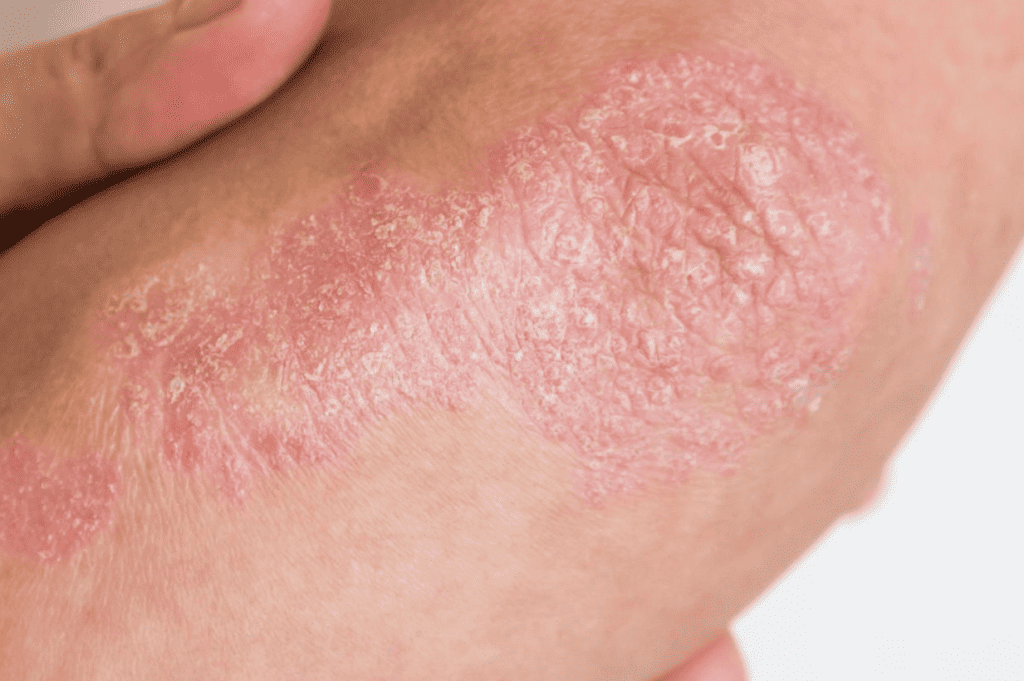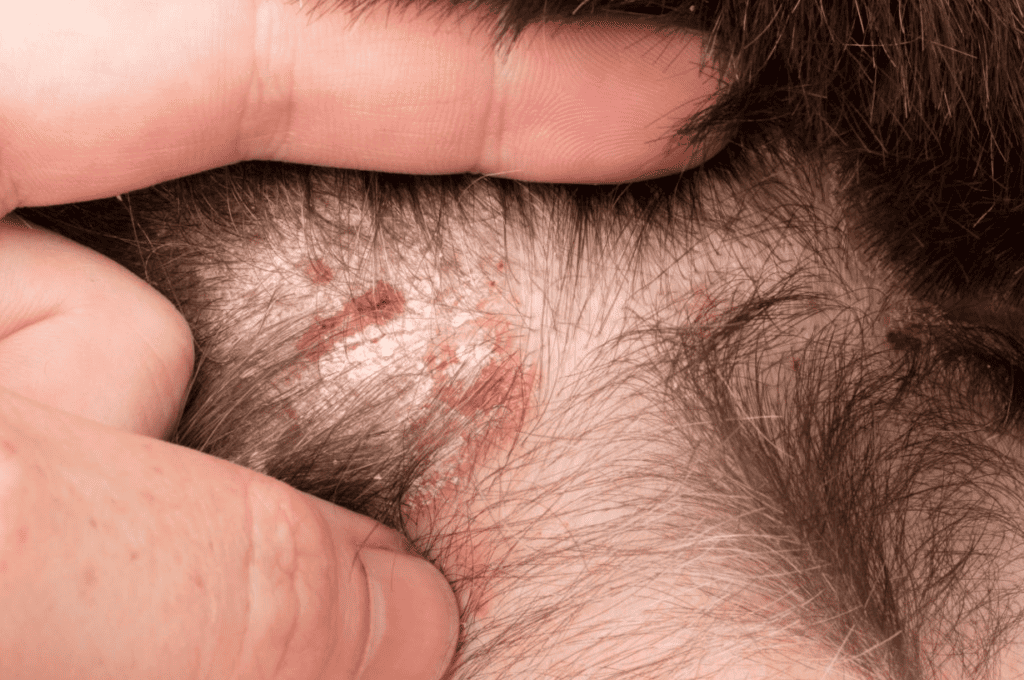Is Psoriasis Different from Ringworm?
Psoriasis is a chronic autoimmune skin condition distinctly different from ringworm, which is a fungal infection. Commonly referred to as “silver scale disease” or “scalp psoriasis,” its hallmark is the appearance of red or silvery-white scaly patches on the skin, often found on the elbows, knees, shins, scalp, and lower back. The rapid turnover of skin cells, caused by abnormal cytokine production by T cells, leads to the accumulation of silvery-white scales. Severe cases can result in erythroderma (widespread redness of the skin) and pustular psoriasis.
Symptoms and Common Locations of Psoriasis
Psoriasis typically manifests as raised, thickened patches of skin varying in size, particularly on the scalp, elbows, knees, shins, and lower back. If the psoriasis is immune-mediated, it may also involve joint inflammation. Erythrodermic psoriasis does not produce the thick, silvery scales seen in other types of the condition, while pustular psoriasis is characterized by swelling and pus-filled blisters, sometimes accompanied by fever.

Nail psoriasis can lead to pitting, discoloration, thickening, and detachment from the nail bed, resembling fungal nail infections. Psoriasis on the soles can cause inflammation and pain.
What Causes Psoriasis?
Psoriasis stems from an immune system malfunction, and while the exact cause is unclear, genetic factors have been implicated through extensive research. Beyond genetics, stress, mental strain, physical exhaustion, and external factors like respiratory infections, tonsillitis, vitamin deficiencies, consumption of irritants, medication, and physical trauma can trigger psoriasis.

How is Psoriasis Treated?
Psoriasis treatments can be categorized into topical, oral, and light therapy. Topical Treatments: Mild cases often respond well to steroid creams, but caution is advised to avoid thinning skin and other side effects from prolonged steroid use. The use of vitamin D and retinoic acid creams has become more common, especially for psoriasis affecting the face, genitals, and skin folds.
Oral Medications: For extensive or unstable cases, low-dose chemotherapy drugs, immunosuppressants, and retinoids are prescribed.
Light Therapy: Utilizes specific UV light wavelengths from sunlight to modulate skin immune function and inhibit epidermal hyperproliferation, offering a more lasting effect. Treatment frequency is typically 2-3 times per week.
Biologic injections have also been introduced in recent years, approved for use in severe psoriasis and psoriatic arthritis patients, offering a new treatment option. However, due to high costs, they are typically reserved for severe cases unresponsive to UV light and traditional oral medications.
Daily Prevention of Psoriasis
To prevent psoriasis flare-ups, maintain a regular daily routine, engage in stress-relieving activities, and adopt a habit of exercising or relaxation practices for a few minutes daily, aiming for 4-5 days of activity per week. Keep living environments clean and dry, avoid dampness and cold, and consider sunbathing affected skin areas cautiously to prevent sunburn while ensuring proper sunscreen application on unaffected areas. Opt for a diet high in protein and low in fat, rich in vitamins from vegetables and fruits, and avoid irritant foods and substances.
Can Fish Oil Treat Psoriasis?
Fish oil, particularly from mackerel and salmon rich in eicosapentaenoic acid (EPA), can alleviate inflammation and reduce psoriasis symptoms. However, consuming the required amount of EPA daily would require approximately 1 kilogram of fish, making fish oil capsules a practical supplement option.
If you want to know more, or want to browse more pictures, please click the video below: